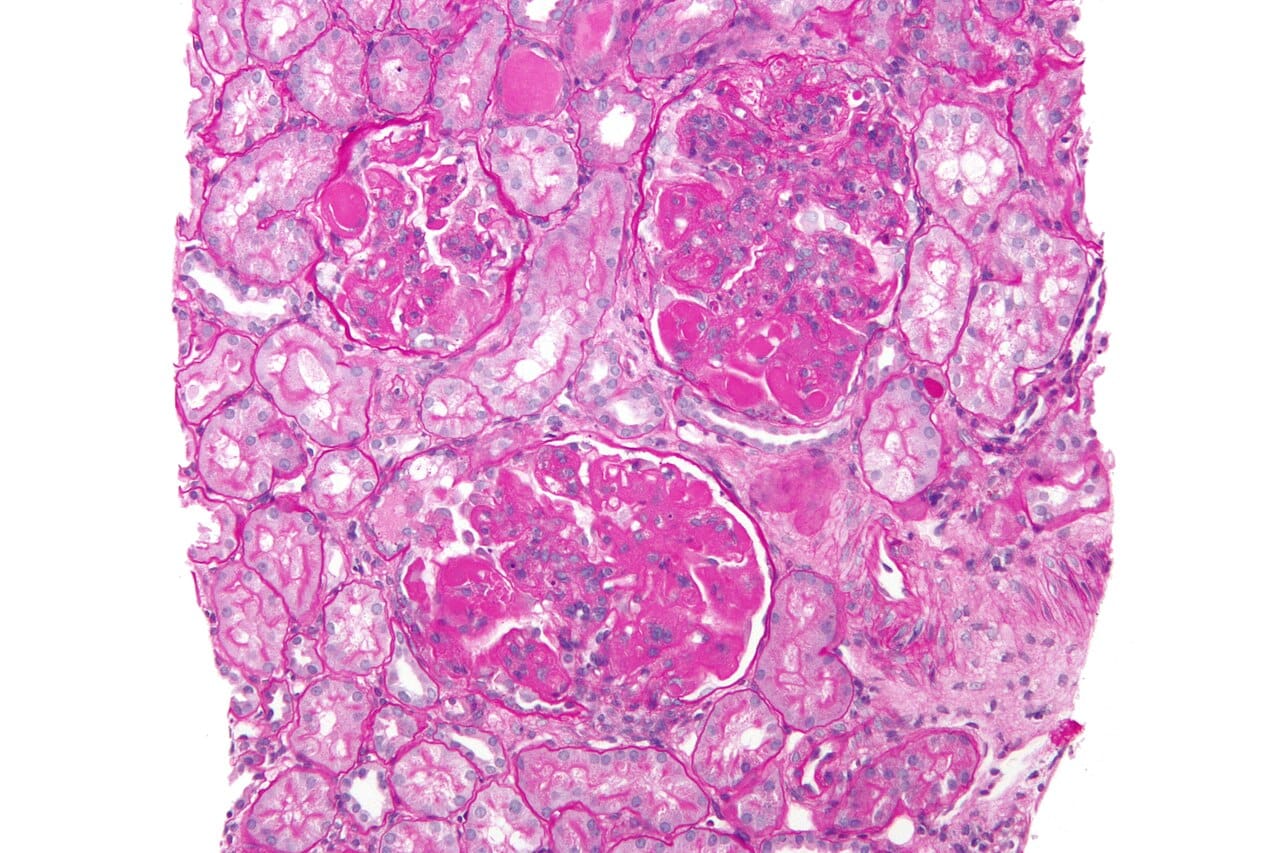Lupus Nephritis After Kidney Transplant recurs but is lower in the current immunosuppression era.
A 38-year-old female with a history of class IV lupus nephritis, on dialysis for 5 years, received a living donor transplant 8 years ago.
Her immunosuppressive medications include tacrolimus, prednisone, and mycophenolate mofetil. Her double-stranded DNA antibody has always been positive. She has worsening creatinine and a kidney biopsy is done, which is consistent with recurring lupus nephritis, class IV, and chronic allograft nephropathy, likely related to tacrolimus.
Recurrence of Lupus Nephritis after Kidney Transplant
Class IV

Please answer the following questions:
No.
These markers have been unreliable indicators of disease recurrence and activity of lupus nephritis after kidney transplant.
Systemic Lupus Erythematosus and Lupus Nephritis, and Lupus Nephritis After Kidney Transplant
Overview of Systemic Lupus Erythematosus (SLE)
Systemic lupus erythematosus (SLE) is a complex autoimmune disease that affects multiple systems in the body. It is characterized by the formation of autoantibodies, which can lead to various complications.
Lupus Nephritis (LN)
Approximately 50-60% of patients diagnosed with SLE will develop lupus nephritis (LN) within the first ten years. This condition significantly impacts kidney function and overall health.
End-Stage Kidney Disease (ESKD)
The five-year risk of developing end-stage kidney disease (ESKD) among patients with lupus nephritis ranges from 10% to 70%.
Treatment Options
For patients with lupus nephritis who progress to ESKD, kidney transplantation is considered the treatment of choice. This approach is preferred over dialysis because of several benefits:
* Improved quality of life, better survival rates, and fewer complications compared to dialysis.
Transplantation Timing
Recent studies show that patients who receive kidney transplants experience a significantly lower risk of morbidity and mortality from cardiovascular events and infections compared to those who remain on the waitlist. Earlier transplantation is linked to better graft outcomes.
* Transplantation should not be delayed until a living donor is available.
* Delaying transplant does not improve outcomes and may worsen patient health.
Recurrence of Lupus Nephritis after kidney transplant
Recurrence of lupus nephritis after kidney transplant (lupus nephritis in the kidney allografts) occurs in 2% to 11% of patients at risk. However, studies have shown that this recurrence is not a significant cause of graft failure.
Key points regarding recurrence of lupus nephritis after kidney transplant:
* Delaying transplantation does not affect the likelihood of recurrence.
* There is no evidence to support postponing transplantation based on serological markers, such as double-stranded DNA antibodies.
* These serological markers have proven to be unreliable indicators of disease recurrence and activity post-transplant.
Learn More:
Diagnostic Testing for Kidney Involvement in Patients with Systemic Lupus Erythematosis: Provider Quiz, Medicine by Michael Aaronson MD
Using The Number Needed To…
Best Way To Prevent Contrast…
Go to the Top


